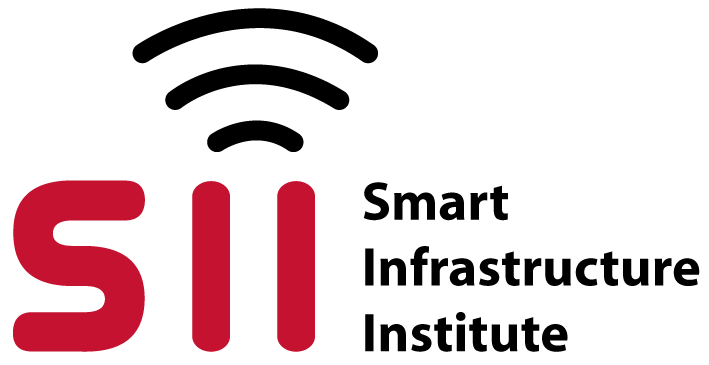CERCA - Center for Engineering and Resilience for Climate Adaptation
CERCA is an interdisciplinary research center committed to developing a suite of novel methods, tools, and analyses needed to incorporate climate change impacts into engineering infrastructure designs and decision-making.
Headquartered in Carnegie Mellon University’s Civil and Environmental Engineering Department, CERCA draws on world-class faculty from around the University to advance the state of knowledge in engineering and resilience for climate adaptation through cutting edge research. Our work will enhance resiliency to increased threats, maximize benefits, and inform local, regional and national infrastructure decisions for climate change adaptation.
CERCA aims to:
- Create tools that will maximize infrastructure performance under climate change by developing adaptive capacity and assessing tradeoffs
- Maximize net benefits of projects by minimizing life cycle costs, capturing benefits, and develop multi-use/multi-task infrastructure under uncertainty
- Train the next generation of engineering human capital for climate adaptation

CACES - Center for Air, Climate, and Energy Solutions
The Center for Air, Climate, and Energy Solutions is a collaborative research center at Carnegie Mellon University created through a partnership with the Environmental Protection Agency.
Issues like shale gas development, electric car subsidies, and power plants of the future raise air and climate questions that require integrated thinking. The new Center will bring together experts to arrive at the best decisions.
In the center, experts and researchers will:
- Measure air pollutant concentrations across the country to improve the health of vulnerable populations.
- Develop and disseminate tools for scientists,
policy makers , and citizens to predict the health impacts and social costs of air pollution. - Evaluate the impact of future scenarios for electricity, transportation, and urban development on air quality and human health.
- Quantify regional variation in mortality, heart disease, and other health conditions due to air pollution using novel national exposure and health data.
The ultimate goal is to create a cleaner, healthier environment.

CEINT - Center for the Environmental Implications of NanoTechnology
The Center for the Environmental Implications of NanoTechnology (CEINT) explores the relationship between a vast array of nanomaterials— from
Headquartered at Duke University, CEINT is a collaborative effort bringing together researchers from Duke, Carnegie Mellon University, Howard University, Virginia Tech, University of Kentucky, Stanford University, and Baylor University. CEINT’s academic collaborations include on-going activities coordinated with faculty at Clemson, North Carolina State, and North Carolina Central universities, with researchers at NIST and EPA government labs, and with key international partners including CEREGE (CNRS) in France.
Created with funding from the National Science Foundation and the US Environmental Protection Agency, CEINT performs fundamental research on the behavior of nano-scale materials in laboratory and complex ecosystems.

CenSCIR - Center for Sensed Critical Infrastructure Research
- Perform research with industry and government partners to develop a thorough understanding of the data and decision support needs (human and autonomous control) in a variety of infrastructure contexts and the economic implications of delivering such support.
- Perform research on sensor devices, data models, data interpretation techniques, system behavior models, or decision support frameworks that addresses the needs of a specific critical infrastructure system.
- Perform research needed to develop sensor-data driven vertical decision support systems for specific critical infrastructure systems or components, from the sensors needed, to the data models used, to the algorithms and models applied to interpret that data, to the decision support needed to assist in the delivery, operation and maintenance of an infrastructure system.
- Validate these systems using combinations of laboratory testbeds, field tests, real-world infrastructure systems, and simulations.
- Perform research to explore the common aspects of the developed vertical systems to determine if common approaches or tools may be developed from these more specific solutions.
- Explore new network theories concerning the value of the information provided by sensors distributed throughout a critical infrastructure network, how that information is best converted into decisions (centrally or locally), whether this decision making knowledge must be specified or can it be learned, and whether that information is able to improve the reliability, stability and quality of service of critical infrastructure systems.
- Perform research to develop frameworks that assist developers of such sensor data-driven decision support systems to take advantage of the knowledge gained by this center when creating new vertical decision support systems for critical infrastructure contexts.

CAPS - Center for Atmospheric Particle Studies
Mission: to substantially advance the state of knowledge across this spectrum, and to provide both policy-relevant research and to participate directly and actively in the evolution of environmental policy related to particulate matter.
CAPS strives to be world leaders in science, engineering, and policy covering the full role of fine particulate matter in the atmosphere. CAPS research aims to substantially advance the state of knowledge across this spectrum, and to provide both policy-relevant research and to participate directly and actively in the evolution of environmental policy related to particulate matter.
An essential part of CAPS mission is to educate tomorrow's leaders in this field. CAPS strives to integrate air quality and atmospheric chemistry into the undergraduate curricula of the many departments we represent.
Extensive research opportunities are available for undergraduate research. At the core is an outstanding collection of graduate students from a broad range of disciplines. CAPS goal is for these students to become leaders in academia, government, and industry.

GDI - Green Design Institute
The Green Design Institute is a major interdisciplinary education and research effort to make an impact on environmental quality through green design. The central idea of the institute is to form partnerships with companies, government agencies and foundations to develop pioneering design, management, manufacturing, and regulatory processes that can improve environmental quality and product quality while enhancing economic development. Students from many different degree programs at Carnegie Mellon participate in the Green Design Institute activities.

MAC - Mobility Data Analytics Center
The Mobility Data Analytics Center (MAC) aims to collect, integrate and learn from the massive amounts of mobility data and contribute to the development of smarter multi-modal multi-jurisdictional transportation systems. The ultimate objective of MAC is to:
- Provide archived and real-time traffic data of every element of multi-modal transportation systems
- Reveal the behavior information for both passenger transportation and freight transportation
- Serve as a key instrument for managing transportation systems
- Target a range of users, including legislators, transportation planners, engineers, researchers, travelers, and private companies.

PITA - Pennsylvania Infrastructure Technology Alliance
PITA is a Pennsylvania Department of Community and Economic Development (DCED) program designed to provide economic benefit to Pennsylvania through knowledge transfer, the discovery of new technologies, and the retention of highly educated students.
It is a collaboration between the Commonwealth of Pennsylvania, the Center for Advanced Technology for Large Structural Systems (ATLSS) at Lehigh University, and the Engineering Research Accelerator at Carnegie Mellon University.
PITA’s research and education projects involve Pennsylvania companies, faculty, and students. PITA’s programs have led to the creation and implementation of numerous cutting-edge technologies in Pennsylvania companies and have also enabled several start-up companies to form within the Commonwealth.

Sii - IBM Smarter Infrastructure Lab - Division of the Smarter Infrastructure Incubator at Carnegie Mellon
SII is created to do research towards providing sensor data-driven awareness of the usage and condition of their systems (both for components and the entire network), advanced information models and visualization approaches to provide more insight into trends and patterns of behavior, and proactive, intelligent decision support and control of these critical infrastructure systems over their lifetime.
The end goal of SII is to have higher quality infrastructure systems, and efficient, effective, secure and sustainable operations.

SEER - Steinbrenner Institute for Environmental Education and Research
A primary objective of the Steinbrenner Institute is to support and advance environmental research through competitively awarded seed funding and graduate fellowships each year, and through coordination of efforts to establish new interdisciplinary research initiatives. Specific aspects of the Steinbrenner Institute mission include:
- Facilitate connections among faculty, students, alumni, corporations, and community groups by conducting multi-stakeholder workshops/seminars, developing partnerships and collaborative research initiatives.
- Promote Carnegie Mellon’s core academic strengths housed in existing research centers by increasing visibility with a communications strategy that includes a webpage, newsletter, media outreach, and meetings with corporations, foundations, and alumni.
- Advance emerging and interdisciplinary interests in environmental research by awarding seed grants and graduate student fellowships, and coordinating efforts to secure funds for new research initiatives.

The CMU-Penn T-SET UTC focuses on research and ultimately deployment of technologies for safe and efficient transportation.
The thrusts of the T-SET UTC are structured along 5 core areas: In-Vehicle Technologies, Infrastructure Technologies, Human-Vehicle Interactions, Mobility/Data Analytics and Policy.

Traffic21 is a multi-disciplinary research institute of Carnegie Mellon University. Its goal is to design, test, deploy and evaluate information and communications technology based solutions to address the problems facing the transportation system of the Pittsburgh region and the nation.
The Pittsburgh region will serves as a “learning lab,” deploying solutions that can be applied around the nation and the globe. Traffic21 will leverage Carnegie Mellon’s leadership in relevant areas such as critical infrastructure, transportation access, transportation routing, human factors, artificial intelligence, web applications and autonomous vehicles.
Traffic21 is directed from Carnegie Mellon University’s H. John Heinz III College, consisting of a School of Public Policy and Management and a School of Information Systems and Management. Faculty and students from the range of Carnegie Mellon schools and colleges contribute to Traffic21 research.

WaterQUEST - Water Quality in Urban Environmental Systems
The goal of this center is to advance the scientific basis for management of inputs and inventories of contaminants in urban watersheds. Water QUEST involves several critical components:
- primary research on environmental sources and fate of contaminants of concern in urban systems (e.g., pathogens, persistent toxicants),
- development of necessary monitoring and modeling capabilities for urban watersheds,
- development of technologies and modeling tools for improved management of water quality in urban systems, and
- outreach and education to develop a citizenry ready for the challenges of managing urban water systems.
Located at Carnegie Mellon University in the heart of Pittsburgh, Water QUEST uses this urban area as a laboratory for research and development.

The Wilton E. Scott Institute for Energy Innovation
The Wilton E. Scott Institute for Energy Innovation is focused on developing and demonstrating the technologies, systems and policies needed to make the transition to a sustainable energy future.Using Carnegie Mellon University’s expertise in integrated systems and problem solving, and an understanding of the intersection of energy and public policy, the institute concentrates on energy efficiencies and reliability, as well as smart operations, materials and processes.
